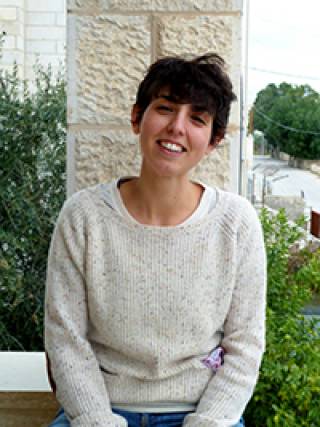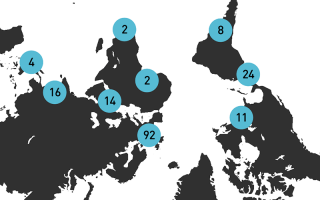Lucia recounts experiences of studying MSc Building & Urban Design in Developmentat the Development Planning Unit

Indeed, picking up as much as I can from different perspectives and fields of research, I am used to build an incessant and (self-)critical process of investigation, continuously constructing and de-constructing my understanding in order to adapt it to external and multifaceted inputs.
I graduated with a project based on the fieldwork I have undertaken in Brazil in 2011. The dissertation proposed a range of design guidelines and small-scale design interventions that intersect the adaptive transformation of key public spaces, with the mitigation of flood risks, within the favela of Rio das Pedras. I decided to start the project even if I didn't have the possibility to have a supervisor for my thesis. Experiencing the design approach without the support of anybody and in a new environment was indeed challenging for my personal and professional growth.
This study allowed me not only to investigate the complex process of design for development, but also and primarily to question my own approach to the subject as well as to question the basic disciplinary assumptions that I have been encouraged to accept in the course of my studies. This experience consolidated my desire to further reflect on the aims, scope and methodologies of my own work as an architect.
It was during this time that I discovered BUDD. At that time I was profoundly disillusioned with the academic environment but BUDD's ideas seemed to go directly in the desired direction of investigation. I chose this course because it focuses on the idea of architecture as a site of contestation, as contingency, and on design as something critical and closely related to cultural, political, economic and social analyses in the production of spaces within the language of urbanity. Certainly, experiencing the Bartlett's environment (and specifically studying at the DPU) has strengthened a more practice-oriented vision.
This perspective relates to the recalibration of the urban design praxis with the necessity of a continuous spatial research that is both (re)active and critical. The BUDD course exposed me to several personal and intellectual challenges: stimulating philosophical discourses on the urban development, analytical methodologies for the design and the communicating processes. This approach gave me the tools to strategically consider the spatial implications as propositional and transformative opportunities in relation to social and political scenarios.
After completing my Masters at BUUD, I quickly visited my family, and here I was on another plane to the West Bank. Indeed, I still believe in the importance of experiencing and investigating directly the field of the architectural research. For this reason, I decided to take part in an art and architectural residency with a project called Decolonizing Architecture (DAAR), based in the Palestinian Territories. I became interested in DAAR because of its critical and transformative approach and for how their operate is interconnected with social practice and political debates.
I identify strongly with DAAR’s methodology based on an interdisciplinary investigation which considers architectural proposals in their strategical potential. In this way, I believe that this experience can critically contribute to my incessant investigation about the role of the architectural practice. How difficult is it, in practice, to work with simple and propositional interventions in strong relation to territorial dimension and at different scales?
For this reason, I believe in having the opportunity to work through a provocative approach which can reveal the spatial dimension as a constitutive part of the ‘logic of the surface’ that rules the inner mechanism driven by state agencies. Thus, I see how the meaning of the spatial structure can be subverted allowing to reconfigure a new ground of relations and new public and common functions acting through simple and propositional interventions in strong relation with a territorial dimension at different scales.
Now, I am just at the beginning of a new and challenging process and I feel that the opportunity given by the residency could significantly expand and enrich my learning and practical process. While I am directly living this amazing experience, I am definitely testing the hardship of working in extreme and difficult situations and with limited resources, while also trying to cope with the frustration linked to military occupation.
And at the same time, I can say that I am really excited to have the opportunity to explore a dynamic engagement in the profoundly challenging situation of the Palestinian context, combining research and practice. I hope that this experience can be really stimulating both within the Palestinian and Middle-Eastern context, and more extensively within the Mediterranean area.
 Close
Close


